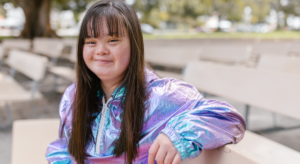
When it comes to disability discrimination, we all know the word has a negative connotation. But, we might not understand how discrimination affects actual people.
Today, we want to share a few ways that disability discrimination affects individuals.
What is disability discrimination?
First, let’s talk about a few ways that disability discrimination can show up. According to the Equality and Human Rights Commission, there are six main types of disability discrimination:
- Direct discrimination
- Indirect discrimination
- Failure to make reasonable accommodations
- Discrimination arising from disability
- Harassment
- Victimization
If you’re curious about how some of these types of discrimination show up at work, check out our blog on some myths we often encounter around hiring someone with a disability.
Employment
Of course, here at HireAbility Spokane, we’re going to talk about employment. People with disabilities have fewer employment opportunities and tend to earn less on average than people without disabilities.
If you’re wondering why employers don’t hire employees with disabilities, check out our previous blog on that subject. Many are afraid of a complicated process or even awkwardness. While we certainly have empathy for those issues, they’re often based on misconceptions that we want to help employers overcome.
Health
Disability discrimination has a strong association with higher levels of psychological distress and poorer health.
“The higher levels of discrimination experienced by people with disabilities are likely to have wide ranging effects on their social and economic circumstances (such as being excluded from employment) leading to poorer living conditions.” (Source)
Housing
The physical segregation of people with disabilities has been a longstanding issue. A study sponsored by the U.S. Department of Housing and Urban Development found that people who are deaf or hard of hearing face significant barriers during the home-seeking process, including communicating with housing providers and learning about available units.
Public Spaces
Access to public spaces may be something most people take for granted. For people with disabilities, public areas can be hostile, with people saying offensive statements or holding negative attitudes towards their existence in a public space.
Voting
This is another area where people with disabilities tend to experience discrimination. That could be due to not being able to see the ballot or an inability to use voting machines.
A research team reviewed information from the U.S. 2012 elections and found that almost a third (30.1%) of voters with disabilities experienced some kind of difficulty in the voting process, which differs greatly from those without disabilities (8.4%).
Ready to hire employees with disabilities?
If you’re looking for ways to make your hiring more accessible, check out our free interview tips that will help you find qualified employees.
Follow us on LinkedIn, Instagram, or Facebook for more tips.
